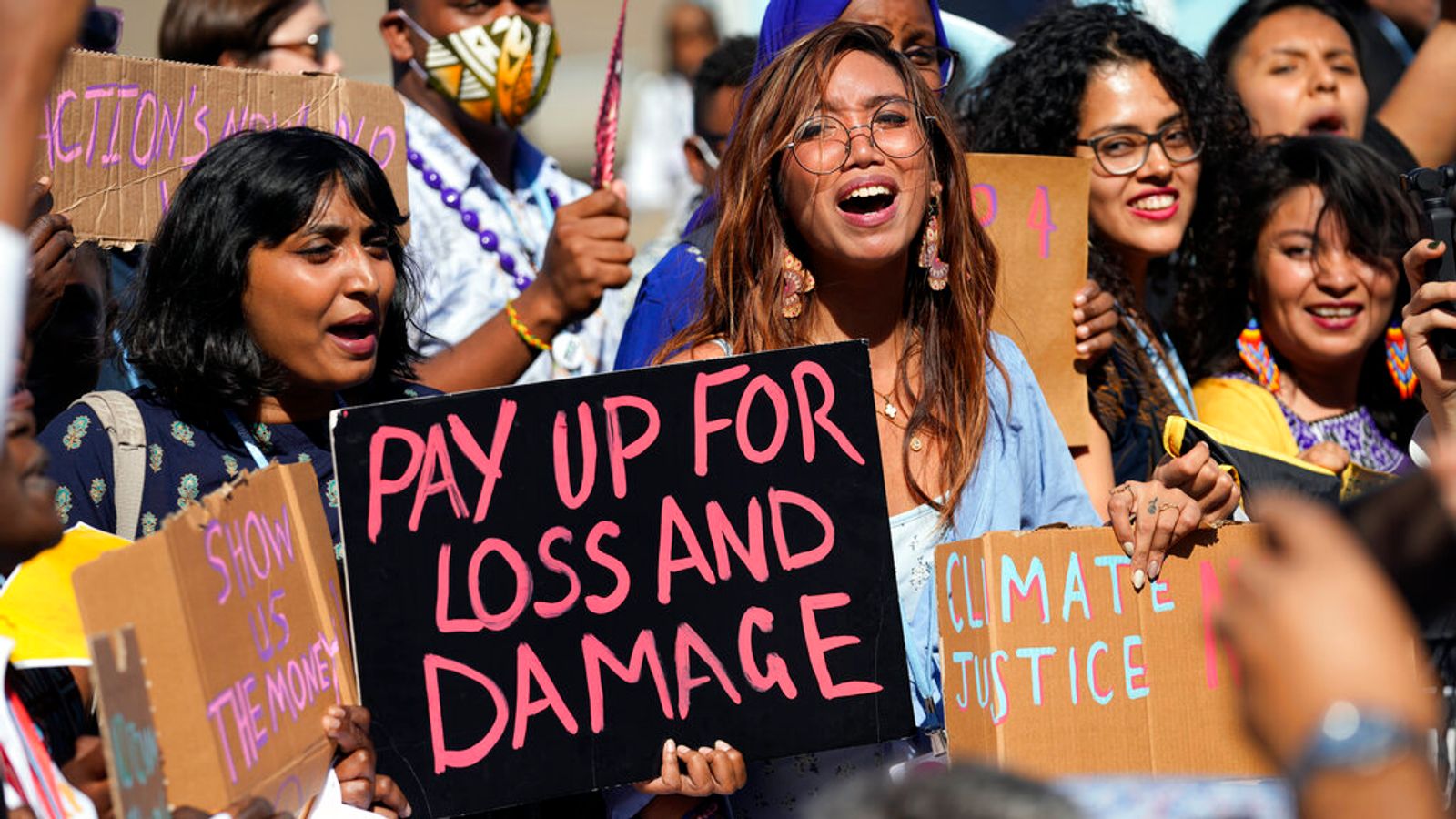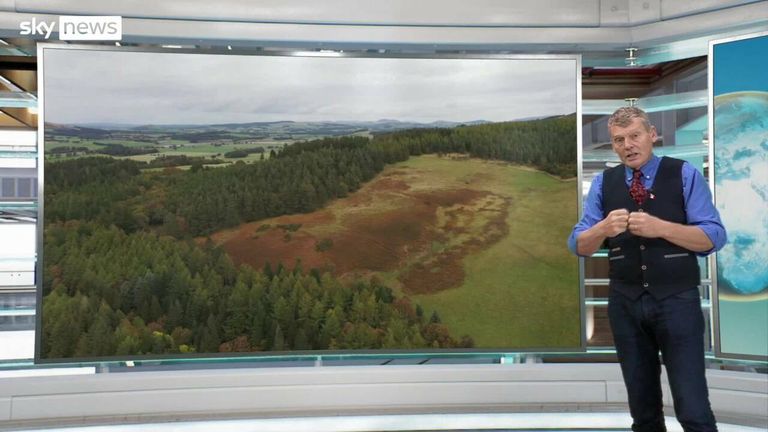Countries have agreed a historic dedicated fund to help vulnerable nations hit by climate disasters, but failed to step up efforts to tackle the damaging emissions that cause them.
Many controversial decisions also remain about the hard-won compensation scheme, including who pays in and who is eligible for the cash.
But it was seen as a breakthrough that funding for so-called “loss and damage”, even made it on to the official agenda for the talks in Sharm el-Sheikh.
Campaigners have welcomed the move to support developing countries wrestling with the damaging impact of rising global temperatures, including extreme flooding, storms, drought and rising sea levels, despite having contributed little to the pollution that caused it.
Antigua and Barbuda’s Molwyn Joseph, who chairs the organisation of small island states, described the agreement as a “win for our entire world”.
However, there has been strong criticism that the deal, agreed at dawn after tense overnight negotiations, did not include tougher moves to curb emissions, including a commitment to phase out all fossil fuels.
‘1.5C on life support’
Alok Sharma, the UK government representative at the conference, who was president of last year’s climate talks in Glasgow, said the goal of limiting global warming to 1.5C was “on life support”.
Highlighting gaps in the agreement to cut emissions, Mr Sharma said: “We joined with many parties to propose a number of measures that would have contributed to this.
“Emissions peaking before 2025, as the science tells us is necessary – not in this text.
“Clear follow-through on the phase-down of coal – not in this text.
“A clear commitment to phase out all fossil fuels – not in this text.
“And the energy text, weakened in the final minutes.”
He added: “I said in Glasgow that the pulse of 1.5 degrees was weak.
“Unfortunately, it remains on life support.
“And all of us need to look ourselves in the mirror, and consider if we have fully risen to that challenge over the past two weeks.”
‘Not enough of a step forward’
European Union climate policy chief Frans Timmermans said the deal was not a sufficient step forward and criticised the commitment of some countries towards efforts to limit rising temperatures.
“This is the make or break decade, but what we have in front of us is not enough of a step forward for people and planet,” Mr Timmermans told the summit.
“It does not bring enough added efforts for major emitters to increase and accelerate their emissions cuts.”
Subscribe to ClimateCast on Spotify, Apple Podcasts, or Spreaker.
He added: “I urge you to acknowledge when you walk out of this room, that we have all fallen short in actions to avoid and minimise loss and damage.
“We should have done much more, our citizens expect us to lead.
“Too many parties are not ready to make more progress today in the fight against climate crisis.”
‘World needs giant leap on climate ambition’
UN secretary-general Antonio Guterres said: “A fund for loss and damage is essential – but it’s not an answer if the climate crisis washes a small island state off the map – or turns an entire African country to desert.
“The world still needs a giant leap on climate ambition.”
Ani Dasgupta, president of the World Resources Institute said: “It is mindboggling that countries did not muster the
courage to call for phasing down fossil fuels, which are the biggest driver of climate change.”
Frantic negotiations
Towards the end of the second week, delegates wondered whether a deal would materialise, with host nation Egypt leaving it until Friday to produce the first draft, hours before the summit was due to close.
A series of frantic negotiations followed as countries sought to tip the balance of the text in favour of their respective aims.
The COP process relies on consensus, so all of the almost 200 countries present have to agree on the deal for it to go through.
Egypt faced criticism for restricting protests, poor organisation and its ongoing imprisonment of British-Egyptian activist Alaa Abd El Fattah, among many other government opponents.
Watch the Daily Climate Show at 3.30pm Monday to Friday, and The Climate Show with Tom Heap on Saturday and Sunday at 3.30pm and 7.30pm.
All on Sky News, on the Sky News website and app, on YouTube and Twitter.
The show investigates how global warming is changing our landscape and highlights solutions to the crisis.


